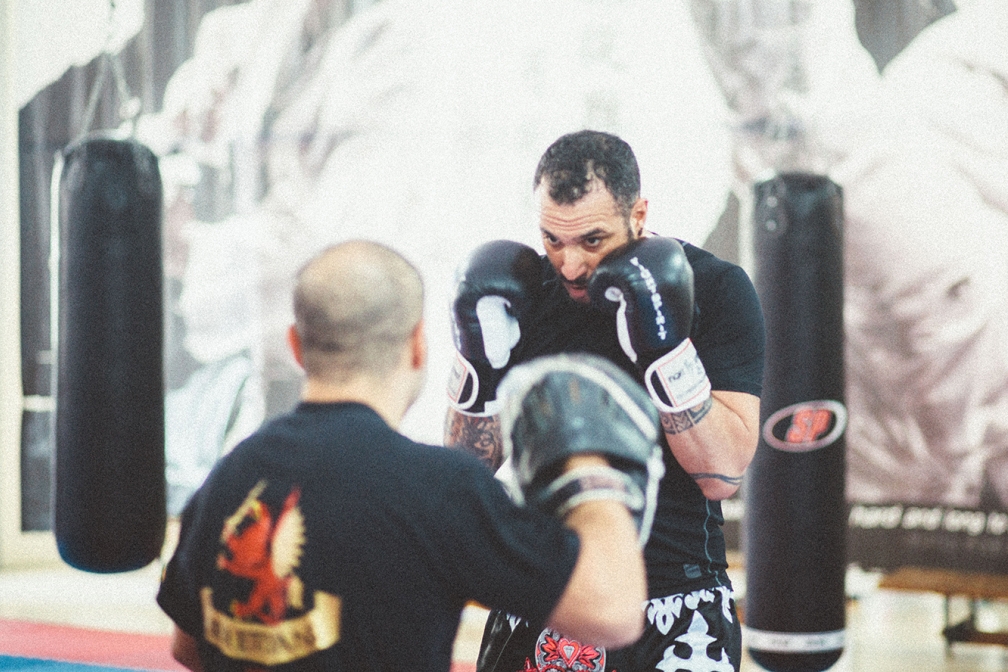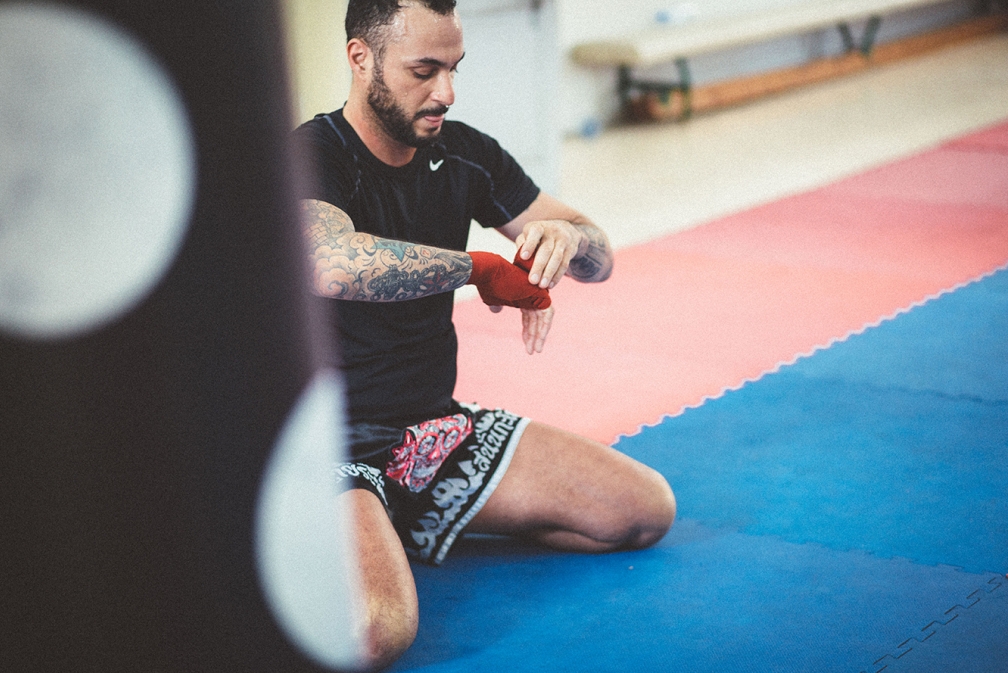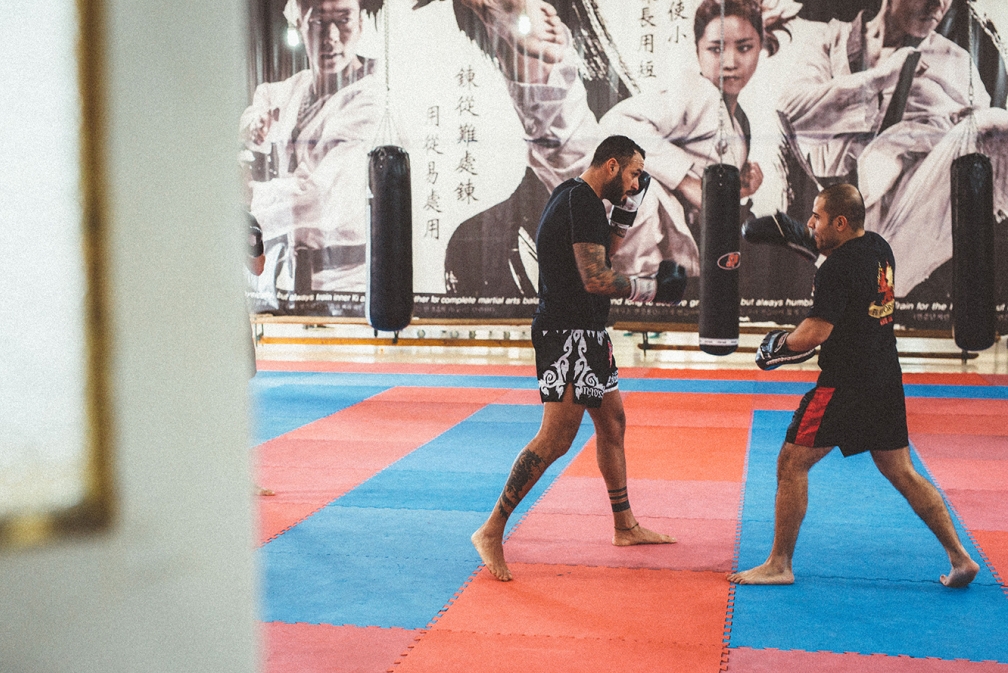 Features
Features
Loco Dice: Master of Muay Thai
The artist opens up about his rigorous training regime in Thailand
Thailand often invokes a longing for tropical beaches, raucous parties and lazy holidays. Luxury in Southeast Asia also comes at a fraction of the cost that it does in the West and so it’s not uncommon for touring artists to plan some extra time off in Thailand before or after gigs in the region to indulge in the country’s opulence. But there are a few who have discovered another side to Thailand, a side that promotes physical and mental health as well as a total disconnect from real life by offering fully immersive and rigorous training experiences. For some that’s yoga but Muay Thai, or Thai boxing, is becoming increasingly popular amongst farangs who are looking to detach, get fit and experience a kind of Thai culture that isn’t offered on the beaches of Phuket. Muay Thai camps are common all over Thailand and see both beginners and seasoned fighters participate in hyper-intensive full-day training programs. We've caught wind of a few music industry professionals periodically checking themselves in for weeks and even months at a time, so when Loco Dice showed up for a gig in Bangkok immediately following a month-long training session in the south, we chased him down to talk about all things Muay Thai.

What gym do you train at in Phuket?
Actually I train in Koh Samui and not Phuket. I prefer it to Phuket because Phuket is a bit too touristy. I train at the Lamai Muay Thai Camp, it’s the largest one there.
How many times have you been over to Thailand to train?
Almost every year.
For how many years?
I used to go to Thailand a lot when I was a teenager but then I stopped for a little while, for about 7 years because I was mostly in Ibiza but then I started retuning to Thailand about 5 or 6 years ago.
When you go to train in Thailand, how long do you stay for?
About 3 or 4 weeks.
Give us an idea of your day-to-day schedule at a training camp?
Because we are not fighters, we don’t do the early session. The actual fighters would go for a run at 5am but we wake up at something like 6.30am, have breakfast and then start our run to the gym. Because we don’t stay at the gym, we stay outside in hotels or apartments, it ends up being a 1.5 kilometers run to the gym every day so by the time we get there we are already warmed up before starting to stretch. After that we do two hours of pad and bag work before doing the run back. Then we have a bit of a break to jump in the water, rest a bit and eat something. Around 5pm we do it all over again. We run 1.5 kilometers to the gym, warm up, stretch, do the group session for 2 hours and then 1.5 kilometers back. Then we shower, have dinner, sleep. Sundays are free.

You say you’re not a fighter but does that mean you don’t ever want to participate in a real fight?
I’m doing it just for fun but my goal is to be on the same level as a fighter. My goal right now is that by next February to be ready to fight but to actually do it, well I think we’re all a little bit too old for that. An average good fighter is in his 20s, when you start to turn 30 it’s difficult. When you’re a farang anyway. When you’re Thai it’s different. Saenchai is in his late 30s or 40s and he’s still fighting. Bare knuckles too. So respect to that but we leave it to the Thai’s who know this sport and are born with it.
What first piqued your interest in Muay Thai over other disciplines?
They say in Europe that North Africans are like Thais because of our stature. We’re taller and that’s really the only difference to Thais. We are also very thin. Physically we are more or less like Thais and we know how to kick and how to fight. When you see champions in Europe, they’re all from like Morocco, Tunisia, Algeria, Egypt. This is how I got into it. I’m from Tunisia and my cousins and my friends were all into the sport.
Also for me, I don’t see Muay Thai as an aggressive sport. Instead I see it as an art form. I love the culture, I love the people, I love the country and I love the way that Muay Thai is practiced - with respect and with dedication…you dedicate your whole life to the sport.
Whats the most grueling part about your training in Thailand?
Waking up! The hardest part is waking up in the morning. Everything hurts, you’re blue, you’re tired and the last thing you want to do is go there again or put your clothes on again or smell the fucking oil and the sweat. You just don’t want to do it.
So what keeps you going?
This is what Muay Thai is about and this is what makes you strong. You keep going because you love it so much. You know you are there for a reason otherwise you’re a loser. It makes my mind stronger too and it makes me a greater believer of myself. I wake up, I have pain everywhere but I do it again. And after a few weeks, you survive and you open up a beer and you’re like “YES, I made it”. You go home having achieved something and this is the greatest thing in life. After a training camp like this you feel cleansed, you feel detoxed and you feel amazing - it's like a natural high.
And you consider this to be a relaxing holiday?
[laughs]
How is this relaxing to you when you could be on a beach somewhere secluded like Fiji?
Because I would get bored in Fiji. I’m too hyperactive for that. Don’t get me wrong, throughout the year I get 3 or 4 days where I can relax somewhere on a beach and read a book to calm down but I only really really relax, honestly, when I’m doing Muay Thai. This is a way for me to get out all of my frustrations, my stresses, everything really. I feel completely relieved after a training session. Completely relieved. Like I said, it’s a natural high. I don’t need to smoke, I don’t need to do drugs, I just go and do Muay Thai and I feel good.
(cont'd)


